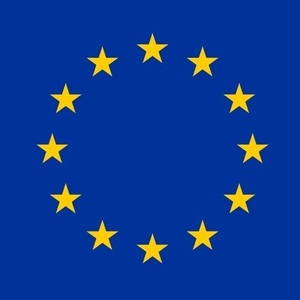EU Parliament approves REDII; biofuels stakeholders react

November 13, 2018
BY Erin Voegele
On Nov. 13, the European Parliament approved new targets for renewables, energy efficiency and second-generation biofuels when it voted to confirm a provisional agreement reached with the European Council in June on a revised Renewable Energy Directive (REDII).
Members of the parliament voted 495 to 68 to approve a binding target that will require renewables to account for at least 32 percent of the European Union’s gross final energy consumption by 2030. The parliament also voted 434 to 104 to approve an indicative target that will require a 32.5 percent increase in energy efficiency by 2030. A third vote approved governance of the Energy Union by 475 to 100, which will require each member state to present a 10-year integrated national energy and climate plan with national targets, policies and measures by the end of 2019 and every 10 years thereafter. Together the three legislative files are part of the Clean Energy for All Europeans package.
Information released by the European Parliament indicates that the targets for renewables and energy efficiency will be reviewed by 2023. The targets, however, can only be raised. They cannot be lowered.
As part of the package, second-generation biofuels must provide at least 14 percent of transportation fuel by 2030. First-generation biofuels that are considered to have a high risk for indirect land use change (ILUC), however, will no longer be able to count toward the EU’s renewable energy goals starting in 2030. From 2019 until 2030, the contribution of first-generation biofuels to the EU’s energy goals will be gradually phased out.
Advertisement
Once the council formally adopts the deal, the new rules will be published in the Official Journal of the European Union and entered into force 20 days after publication. The regulation on governance will be directly applied to all member states. However, member states will have to transpose the new elements of the other two directives into national law within 18 months.
“This clearly indicates that the European Union takes climate change seriously,”said Ilkka Räsänen, director of public affairs at Neste Corp., the large Finland-based renewable diesel producer. “The EU Renewable Energy Directive creates a predictable investment environment for biofuels.”
ePURE, the European renewable ethanol association, said the European Parliament’s final adoption of REDII opens the door to a more effective approach to decarbonizing transport, but cautioned it will be up to member states to turn that ambition into action.
Advertisement
According to ePURE, REDII confirms the importance of sustainably produced crop-based biofuels, including European ethanol, in achieving EU climate coals. The directive, however, caps the contribution these fuels can make to each member state’s 2020 target at 7 percent. ePURE said this means member states have until 2020 to increase their use of renewable ethanol in transport if they want to maximize their ability to reach renewables and climate change targets.
“There’s a message here for the European Commission as it prepares to unveil its long-term strategy for emissions reduction,” said Emmanuel Desplechin, secretary-general of ePURE. “Member states and the European Parliament have agreed that sustainable crop-based biofuels like EU ethanol have an important role to play in decarbonization. The new long-term strategy looking to 2050 should reinforce this by acknowledging the importance of both first- and second-generation ethanol. That would send a real signal from Brussels to member states that the EU is serious about reducing emissions from transport.”
AEBIOM, the European biomass association, said the REDII is good but won’t do enough to decarbonize the EU’s heating and cooling sector. While most past efforts have focused on promoting renewable electricity, AEBIOM said the new REDII is finally addressing heating and cooling too, which represents about half of the EU’s current final energy consumption. A statement released by AEBIOM and a group of other European organizations, however, calls on the EU to be more ambitious in its efforts to encourage the use of renewables in heating and cooling. “The final agreement is pragmatic,” said Jean-Marc Jossart, secretary general of AEBIOM. “Now we urge member states to take concrete measures to phase out fossil fuel subsidies and introduce carbon pricing strategies.”
Additional information is available on the European Parliament website.
Related Stories
Editor's note from the Summer 2025 issue of Biodiesel Magazine
Legislation pending in the Illinois legislature aims to create a clean transportation standard (CTS) that would require a 25% reduction in in the lifecycle carbon intensity (CI) of ground transportation fuels within a 10-year period.
A notice published in the Federal Register by the U.S. EPA indicates that far fewer parties than originally anticipated have registered with the agency as biointermediate producers under the Renewable Fuel Standard.
Biomass Magazine has announced the dates for the 19th annual International Biomass Conference & Expo. The event is scheduled to be held March 31-April 2, 2026, in Nashville, Tennessee, at the Gaylord Opryland Resort & Convention Center.
Industry experts weigh in on the status of Canada’s renewable fuels industry and the impact of government policy and regulation.
Upcoming Events










